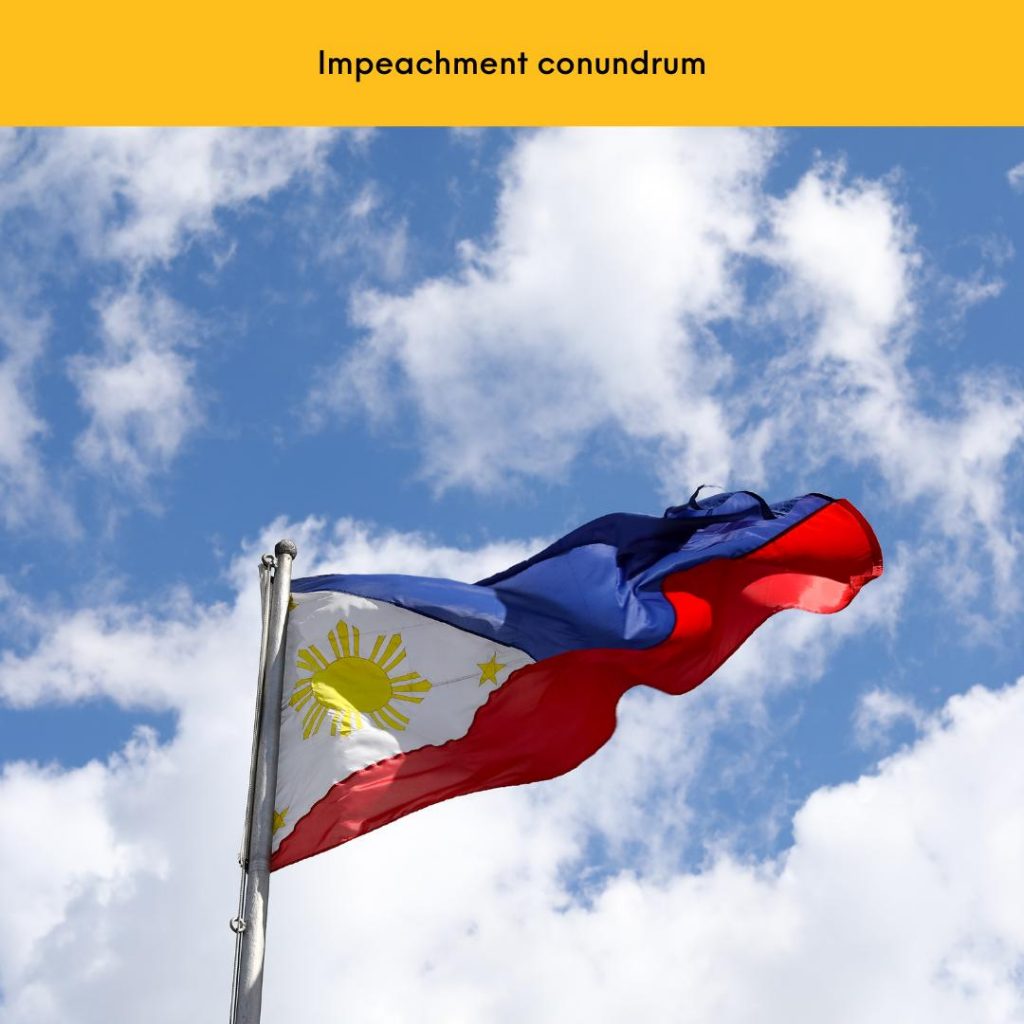
Published 13 June 2025, The Daily Tribune
When I began writing this column nearly six years ago, I set clear parameters for what it would be and what it would not. The aim was — and remains — to inform readers about recent jurisprudence, legal developments, and laws in a way that is practical, digestible, and never divisive. I’ve stayed true to that mission, only occasionally making digressions when public interest and clamor demand it. This is one such occasion.
Following the Senate’s recent decision to remand ( or return ) the articles of impeachment to the House of Representatives, I have received numerous inquiries from readers, colleagues, and students asking: What is your view? Where do you stand?
Earlier in the day, just before the Senate voted on the matter, I had the chance to share my thoughts in an interview with respected journalists and good friends Alvin Elchico and Doris Bigornia. I proposed a practical middle-ground solution: that the 20th Congress, through the House of Representatives, simply affirm the articles of impeachment transmitted by the 19th Congress and re-transmit them to the Senate of the 20th Congress.
This may cause a brief delay — perhaps a few days — but it will remove all lingering doubts regarding jurisdiction and authority. The issue of whether an impeachment trial initiated by a previous Congress can be concluded by a new one is indeed a thorny one, with valid arguments on both sides. Rather than engage in unnecessary legal brinkmanship, my proposed course is, I think, a simple and prudent solution but still grounded on constitutional principles.
With due respect to those who believe otherwise, I believe that the action taken by the Senate — to remand the articles — is prudent, wise, Solomonic, and legally sound.
Prudent, because it ensures that there is no cloud over the Senate’s authority to hear, try, and decide the impeachment case. Legitimacy is essential in a process of this magnitude. Any shred of doubt can cast a long shadow over the integrity of the proceedings.
Wise and Solomonic, because it represents a middle path between halting the process entirely and plowing forward amid uncertainty. It is telling that the Senate vote did not fall neatly along party lines — a signal, perhaps, that there was a genuine attempt to find a sensible compromise.
Legally sound, because the Senate, sitting as an impeachment court, is sui generis. It is not bound by the Rules of Court. It may adopt its own rules, taking into consideration not only legal but also political and public policy considerations. Impeachment is a political process cloaked in constitutional safeguards.
Importantly, the re-transmittal does not violate the constitutional one-year ban on filing the same impeachment complaint. It is not a new complaint; rather, it is a continuation of the same proceedings by a new Congress affirming the previous action. It is not a reset, but a reaffirmation.
From a practical standpoint, approximately 81% of those who signed the impeachment complaint have accordingly been reelected, and the House leadership is expected to be largely unchanged. We are not looking at a radically different political landscape.
Ultimately, what matters most is that the truth be known. My beloved alma mater, the University of Santo Tomas, recently issued a rare public statement calling for one simple yet profound value: Veritas. Truth. When the Dominican institution speaks on political matters — which it seldom does — we are reminded of the moral weight of the issue.
Let the process take its natural, logical and just course. Let the Vice President be given every opportunity to answer the charges, disprove the allegations, and defend her name. If she is convicted by the Senate and the decision is affirmed in the court of public opinion, then it is an exercise in accountability demanded by the Constitution. But if she is acquitted — and the people accept her exoneration — then she will have achieved her vindication, as justice requires.
Let us pray that justice, fairness, and wisdom guide the entire process. For in the end, more than any political victory or defeat, what is at stake is our collective faith in the rule of law and in the strength of our democratic institutions.
For more of Dean Nilo Divina’s legal tidbits, please visit www.divinalaw.com. For comments and questions, please send an email to cad@divinalaw.com.

